2 Week Old Baby – Milestones, Development, and Care Tips

Your little one is home now, and you’re still adjusting to parenthood. While your baby may not have a routine at two weeks, your days are busy, and you are likely following the same routine—feed, change, clean, rock, and repeat. Your little one is adjusting to the outside world, and every day, you’re learning something new about your baby: their crying pattern, hunger cues, and more. But there’s still a lot to learn about your 2-week-old baby’s milestones and development. Furthermore, babies get essential tests and routine vaccinations at this age. Find out all about it and how your little one is developing at 2 weeks.
Your 2-week-old Baby’s Development
Your 2-week-old infant’s development will be exciting than ever. At 2 weeks, the only way your baby can express his discomfort is by crying. At this stage, your baby’s eyes haven’t developed the full sight required to be able to focus and understand something. But babies do have a fascination for human faces. And it is important he gets to see your face more often. At the same time, holding your baby in your arms and giving him skin-to-skin contact will help develop the bond between you and your baby, encourage healthy weight gain, improved breastfeeding, stabilised breathing, calmness, and most importantly, less crying (1). This is also the time of experiencing a growth spurt, so you may see weight gain of about an ounce per day.
[Also Read: Newborn Baby Development]
Your Two-week-old Baby’s Milestones
Towards the second week, the small remnant piece of umbilical cord dries up and falls off, leaving just the navel knot on the tummy. Therefore, until this happens, it is important that the surrounding area is treated gently and with care. It is important to bathe your baby, but instead of the usual tub-filled baths, opt for sponge baths that can keep the baby clean and the navel area safe.
This is also the time when you might be home already and close to establishing a routine. The baby has mostly been in the hospital rooms and within the house, which also means you’ve been in the same places, too. Staying indoors all the time can get boring for you. So you can take a small walk in your backyard if you have one, or on the terrace. Or simply step outside for a few moments and take a breather along with your baby.
Here are some key 2-week-old baby milestones:
- Your 2-week-old baby will have poor eyesight, mostly black and white. That means they can’t focus on anything beyond 8 to 20 inches away (2).
- They will have developed several newborn reflexes, including the rooting reflex (they will look for the breast or bottle when their mouth or cheek is stroked) and the startle reflex (startling involuntarily upon hearing a sound).
- They will be able to lift their head slightly more during tummy time (3).
- They will spend most of their time observing and listening to people and objects around them (4).
- They will begin to smile at the sounds of your voice and turn their head toward the direction of the sound (5).
[Also Read: Newborn Baby Milestones]
Feeding
The 2-week-old feeding schedule will look like your baby feeding frequently as their stomach grows. Your baby is expected to enjoy 8 to 12 feedings (every 1 to 3 hours) in 24 hours on breast milk and six to 8 feedings (every 3 to 4 hours) in 24 hours on formula (6) (7). Growth spurt is common at this age, so if they do, they might do cluster feeding even during evenings, which is basically feeding lots of short feeds over a few hours (8). Cluster feeding will also eventually help increase the breast milk supply.
In the first six months of life, the only source of nutrients for a baby is breast milk (or formula milk, in case the mother is unable to breastfeed). At times, the feeding process can get a little irritating or painful for mothers as the nipples could be a tad more sensitive than usual post-delivery. However, it is important for the breastfeeding process to take place, since that is how the baby starts getting used to the breasts, and with the right synchronisation of his latching and your positioning, your breasts will get comfortable with the same, too. Every feed starts making the process easier.
A 2-week-old baby’s feeding amount can vary from his growth to his weight, and so on. Your breasts will also take some time to get in sync with his hunger timings. At two weeks, it is still quite early to establish a fixed routine or schedule that your baby can adhere to for feeding. It is best to cater to the baby’s demands for now and feed him whenever he is hungry. This also sets your breast milk production into action and keeps you prepared for the increased feeding demands as your baby grows.
[Also Read: Newborn Baby Feeding]
Sleeping
At 2 weeks, a baby’s life is pretty much about feeding and sleeping. These periods alternate throughout the day. Expect your little one to sleep for a larger portion of the day, about 16 to 20 hours a day (9). Your baby might wake up crying with hunger, be fed, then stay awake for some time, observing the world around him, and drift off back to sleep. At times, your baby may start crying even after a feeding, and you might know what exactly is troubling him. Trying out multiple techniques to calm him down may fail to work and cause you to wonder if you are being a good mother or not. However, it is important not to lose hope or feel bad about yourself. Holding your baby in your arms, cooing in his ears, rocking him gently, or bathing him can calm babies down and ensure that they get back to sleep.
While sleeping, it is best that your baby is on their back, has their own crib or a separate bed without any blankets or pillows, and is situated next to you. The American Academy of Pediatrics discourages sleeping with the baby as well as letting babies sleep in a car, stroller, or carrier for the baby’s safety (10). There will be a constant need to keep checking if he’s fine and to feed him if he’s hungry. Having your baby close to you makes it easier for both.
[Also Read: Newborn Baby Sleep Basics]
Behaviour
As with every human being, even the behaviour of babies varies from one infant to another. However, most of them generally fall under the hungry-sleepy cycle. It may not be evident at first, but as you feed your baby, you will realise that a baby uses up quite a lot of his energy in just suckling at your breast, which causes him to fall asleep nearly right after feeding. Premature babies tend to sleep more often than others, and doctors might advise you to wake them up so that they get the necessary feeding completely.
In other cases, certain babies are extremely wide-eyed and curious throughout. Even during breastfeeding, their eyes might dart towards any sounds that may occur in the room. Your baby’s facial expressions might remind you of your own childhood.
Essential Products for Week Two
To make your life and your baby’s easier, you can opt for these products when you have a 2-week-old newborn:
- Nursing Pads: Breasts can leak due to excessive breast milk. In such cases, you can use reusable or disposable nursing pads to absorb the leakage and prevent wet spots.
- White Noise Machine: Trust us; a white noise machine is going to be a lifesaver for you. It emits soothing sounds that are similar to those in the womb and help calm a baby.
- Baby Carrier: Staying at home all the time can get very monotonous and depressing. A baby carrier can be a great addition, which is great for comfort and mobility. The baby carrier keeps the baby close to the mama and strengthens the bond with the baby.
Tips to Take Care of a 2-week-old Baby
- Any crib or cradle that your baby lies in should be comfortable for him. Let there not be too wide a gap in the bars. The bedding of the crib should be firm. Keep it in such a way that it doesn’t have direct air blowing over it. Don’t crowd the cradle with unnecessary toys.
- When preparing water for your baby’s bath, check the temperature by dipping your elbow. Make sure it is not hot by the baby’s standards, since his skin is a lot more sensitive than yours.
- Don’t keep any tiny objects around the baby while playing with him or even while taking care of him. A random hand movement could cause him to grab it and put it in his mouth.
- At two weeks, babies still can’t move their bodies fully. Therefore, it is necessary to put your baby to sleep by making him lie on his back. Don’t keep any blankets near him that might cover his face accidentally.
- Never leave your baby alone by himself. Childproof the home properly and make use of baby monitors, if required.
- If your baby is premature or if doctors mention a low immunity, it is best to keep your baby away from strangers or hordes of relatives. Restrict the number of people who interact with your baby or hold him close. Make sure anyone who does, makes use of a sanitiser before touching your child.
- Keep your doctor’s number handy and feel free to check with them if your baby has a fever or if there are any signs of irritation that seem out of the ordinary.
[Also Read: Newborn Baby Care]
Tests and Vaccinations
Most tests and vaccinations are administered in the first week of the baby’s life. These cover the BCG vaccine for tuberculosis, IPV for polio, and the hepatitis B vaccine (11). If, for any reason, these are delayed in the first week, they could be followed up in the second week as per the doctor’s recommendation.
If they have been done as per schedule, then week 2 is pretty much vaccination-free.
Games and Activities
As your baby is discovering various things around him, one of the first things he can perceive and remember is the sense of touch. You can play with your baby by using a variety of items that have different textures. This could be a baby-friendly plastic toy, a velvet cloth, a silk scarf, a nice soft blanket, your hair, and so on. So, activities to do with 2-week-old baby?
This is the time when a baby’s vision develops, so make sure you show him a few bright coloured blocks or mobile toys to improve his vision. Keep talking to him to encourage him to look at you. This will also increase the bond between you and your baby.
Massaging your baby is a great activity for babies. Make your little one feel comfortable by giving him a nice, gentle massage. Take some baby-friendly massage oil and rub it on your palms to warm it up. Starting from your baby’s legs, begin massaging gently as you continue talking to him. Begin from the calves and continue to the thighs and to the tummy. Be gentle and gradual, as the baby will also start recognising what’s happening to him. In the tummy and chest area, be careful around the umbilical cord if it hasn’t fallen off yet. Make eye contact with the baby and talk to him to keep him calm and engaged. Making soothing voices is extremely beneficial. If your baby resists at any point, stop massaging and hold him closer so that he may not burst into tears.
[Also Read: Newborn Baby Games and Activities]
When to Consult a Doctor
Consider a doctor in the following cases:
1. Jaundice
Most babies suffer from jaundice when they’re young, but jaundice can be taken care of by increased feedings and keeping the baby in sunlight for some minutes. In case it is severe, medical help will be needed. If your baby’s face and chest start getting a yellow tinge, it is important to let your doctor know immediately.
2. Constipation
Constipation is yet another problem that many babies face as they have trouble passing stools. These reduced bowel movements can be taken care of by either giving little water or going for a different formula. Before attempting either of these, check with your baby’s doctor for the same.
3. Sneezing or a Runny Nose
With polluted air all around or even dust particles, your baby could start sneezing or have a runny nose. Try using nasal drops or saltwater if it gets severe.
4. Skin Rash
Constant drooling from the mouth can mostly cause a rash, which goes away with hygiene. If it stays or worsens, call your doctor immediately.
5. Dry and Flaky Skin
Most babies get dry skin, which can be easily fixed by using a baby-safe soap without harsh chemicals in it. Using a moisturising lotion can help the skin retain moisture within it as well.
5. Reflux
Babies are known to throw up food more often than not. This usually happens when the feeding is more than required. If your baby continues to gain weight in an expected manner and doesn’t end up choking on food, these reflux spit-ups are fine. Feeding him a little less than usual and making sure burping is diligently followed after every feeding will ensure a reduction in these.
6. Watery Eyes
At times, the tear duct of a baby could be blocked, causing the eyes to fill with water occasionally. This is not a condition to worry about unless there seem to be signs of an eye infection. In such a case, your doctor might recommend baby-safe eye drops.
7. Diaper Rash
Not removing the soiled diaper for long can result in a diaper rash. To keep your baby safe, keep the area airy and change diapers regularly while making sure that the area stays hygienic.
8. Respiratory Problems
Cough and cold could plague a young baby, too, and advanced medication is rarely required for it. In case the fever aggravates or breathing problems ensue, the doctor will take appropriate measures to resolve it.
FAQs
1. What should I do if my 2-week-old baby is constipated?
Before you look for constipation remedies for your 2-week-old baby, first determine whether they are actually constipated. Typicaly babies poop daily but but can go up to two days without pooping if they are formula-fed and may even go a week if breastfed. If you’re worried because your baby is grunting and straining during bowel movements, just understand that this is completely normal and usually not an indication of constipation. If your 2-week-old isn’t having bowel movements, track their wet diapers and bowel movements to discuss with your paediatrician. Do not give juice, water, or any other home remedies for constipation without seeking advice from your doctor instead.
2. Why is my 2-week-old baby being fussy?
Two weeks is an infancy stage for babies, where they grow at a rapid pace. Thus, they need frequent feeds and plenty of sleep. They are tired, hungry, sleepy, need a diaper change, could be hot or cold, and are seeing a lot of new things around them—all this could overstimulate them as well. This could also make them fussy. Rest assured, this is all a part of baby growth and development.
At two weeks, your baby seems so delicate and fragile. But as he grows and gains weight, you will know that your baby is on his way to being a healthy child, and you will get to enjoy wonderful days with him in the time to come.
References/Resources:
1. American Academy of Pediatrics – Skin-to-Skin Contact: How Kangaroo Care Benefits Your Baby
2. American Academy of Pediatrics – Developmental Milestones: 1 Month
3. American Academy of Pediatrics – Newborn Reflexes
4. American Academy of Pediatrics – Emotional & Social Development in Babies: Birth to 3 Months
5. American Academy of Pediatrics – Hearing & Making Sounds: Your Baby’s Milestones
6. Mayo Clinic – Feeding your newborn: Tips for new parents
7. American Academy of Pediatrics – How Often and How Much Should Your Baby Eat?
8. Pregnancy Birth and Baby – Cluster feeding
9. Riley Children’s Health – Growth & Development: 2 Weeks
10. American Academy of Pediatrics – How to Keep Your Sleeping Baby Safe: AAP Policy Explained
Previous Week: 1 Week Old Baby
Next Week: 3 Weeks Old Baby
Was This Article Helpful?
Parenting is a huge responsibility, for you as a caregiver, but also for us as a parenting content platform. We understand that and take our responsibility of creating credible content seriously. FirstCry Parenting articles are written and published only after extensive research using factually sound references to deliver quality content that is accurate, validated by experts, and completely reliable. To understand how we go about creating content that is credible, read our editorial policy here.







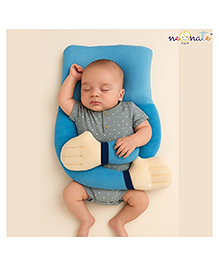
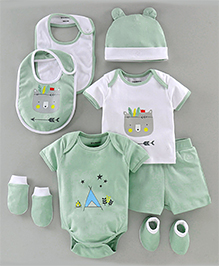
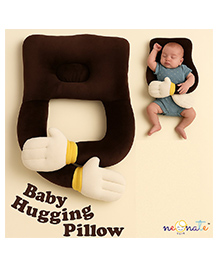
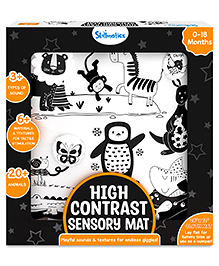
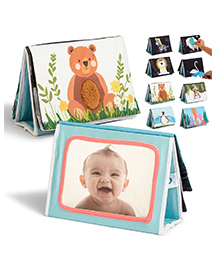
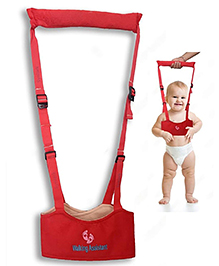
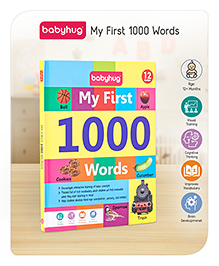
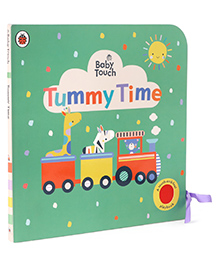
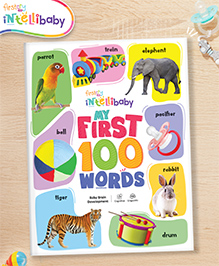

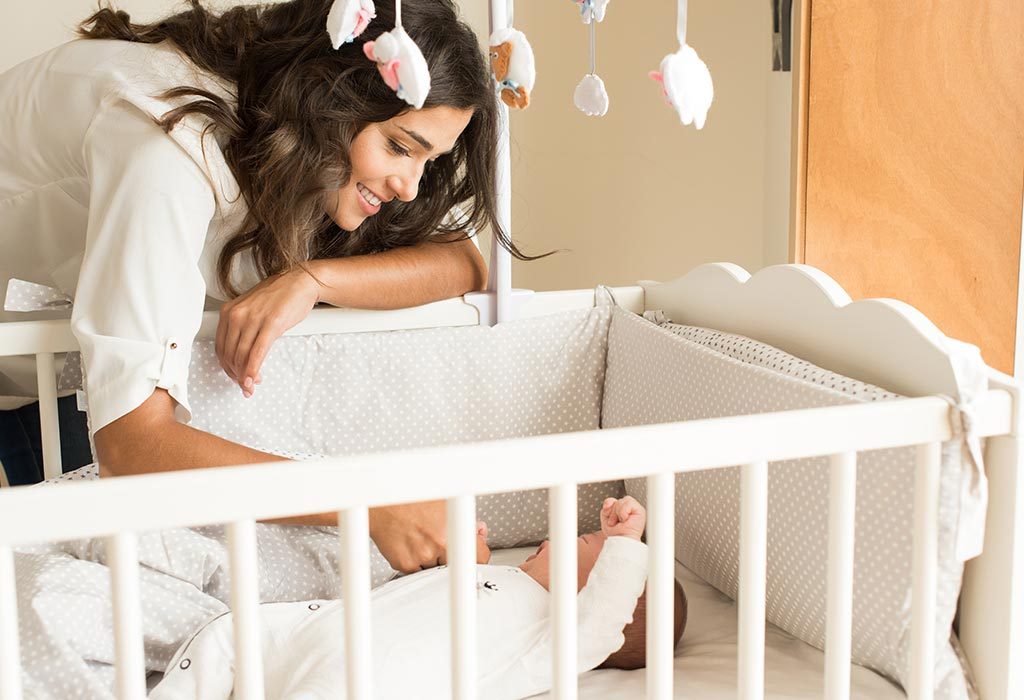

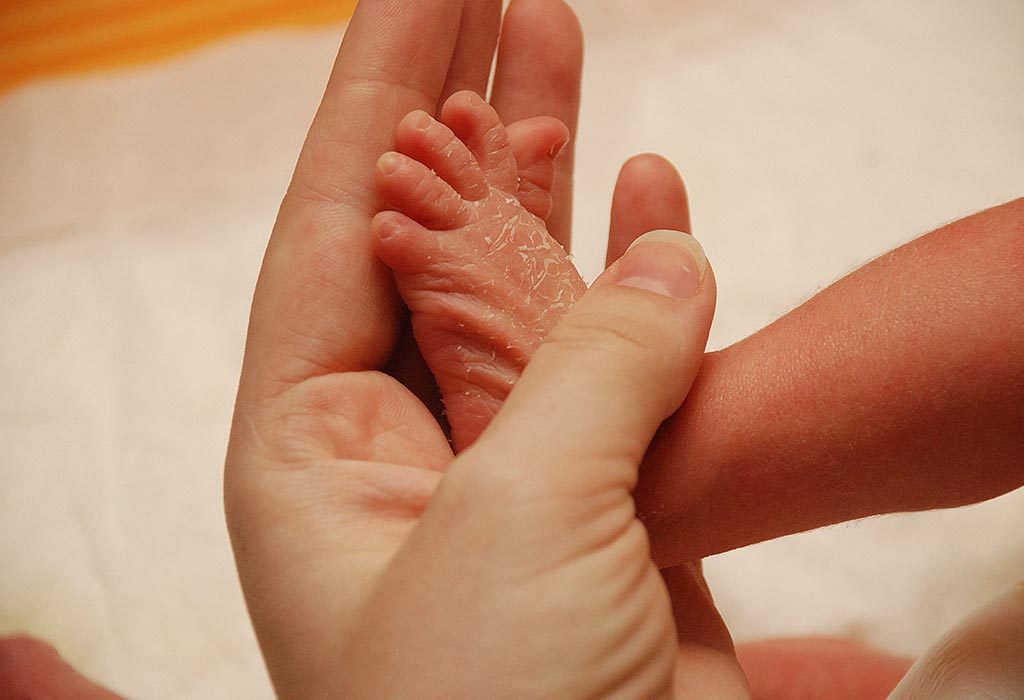


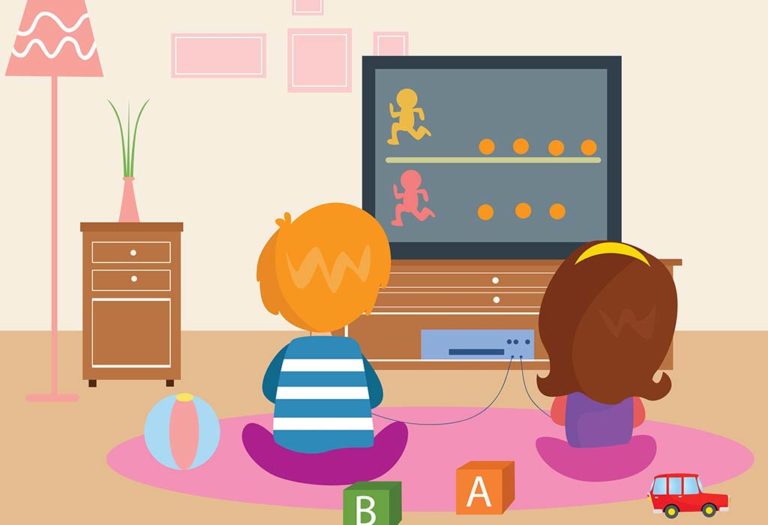


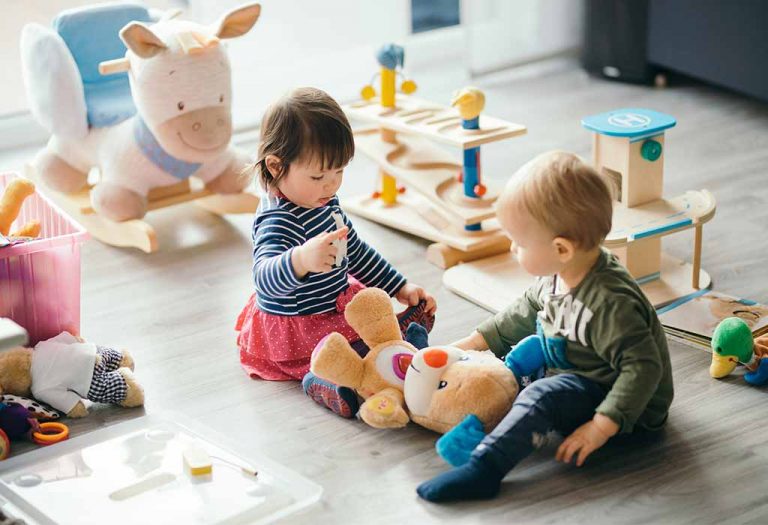

.svg)


















